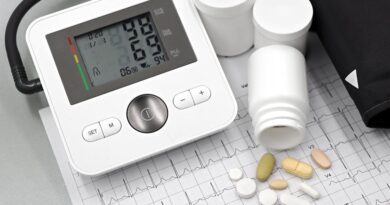Understanding High Cholesterol Health Risks
Did you know that nearly 95 million adults in the U.S. have high cholesterol? that’s about half the adult population! If you’re one of them, you might be wondering, What does this really mean for my health? Lets dive into the world of cholesterol and uncover the risks associated with high levels.
What is Cholesterol?

Cholesterol is a waxy substance found in your blood. Your body needs some cholesterol to build healthy cells. But too much of it can lead to serious health problems.
There are two main types of cholesterol:
- LDL (Low-Density Lipoprotein): Often referred to as “bad” cholesterol. High levels can lead to a buildup of plaque in your arteries.
- HDL (High-Density Lipoprotein): Known as “good” cholesterol. It helps remove LDL cholesterol from the bloodstream.
Why Should You Care About High Cholesterol?

High cholesterol doesnt usually cause symptoms. Many people don’t realize they have it until it’s too late. So, why should you care? Here are the main health risks associated with high cholesterol:
How Does High Cholesterol Affect Your Heart?

High levels of LDL cholesterol can lead to heart disease. It accumulates in your arteries, making them narrow. This narrowing can lead to:
- Heart Attack: When blood flow to a part of your heart is blocked.
- Stroke: When blood flow to part of your brain is cut off.
According to the CDC, heart disease is the leading cause of death in the United States. This statistic is staggering and highlights the importance of managing cholesterol levels.
What Are the Other Risks of High Cholesterol?

Besides heart disease, high cholesterol can also contribute to:
- Peripheral Arterial Disease (PAD): This condition occurs when arteries in the legs narrow, reducing blood flow and causing pain.
- Type 2 Diabetes: High cholesterol is often linked to insulin resistance, making you more prone to diabetes.
How Do You Know If You Have High Cholesterol?
The best way to know your cholesterol levels is through a blood test called a lipid panel. It measures:
- Total cholesterol
- LDL cholesterol
- HDL cholesterol
- Triglycerides (another type of fat in the blood)
Doctors recommend getting your cholesterol checked starting at age 20 and continuing every four to six years. If you have risk factors, you might need to test more often.
What Causes High Cholesterol Levels?
Understanding what causes high cholesterol can help you take control. Here are the main culprits:
- Poor Diet: Eating too many saturated and trans fats can raise your cholesterol.
- Lack of Exercise: Physical activity helps boost HDL cholesterol, the good kind.
- Obesity: Being overweight can increase LDL cholesterol and decrease HDL cholesterol.
- Genetics: Sometimes, high cholesterol runs in families.
Can You Lower Your Cholesterol?
Absolutely! There are several effective strategies you can use to lower your cholesterol. Here are some practical tips:
1. Eat a Heart-Healthy Diet
Focus on foods that can help lower cholesterol, such as:
- Oats and whole grains
- Fruits and vegetables
- Beans and legumes
- Healthy fats (like those in olive oil and avocados)
Try to limit saturated fats found in red meat and full-fat dairy products, and avoid trans fats in processed foods.
2. Get Moving
Regular exercise can help lower LDL cholesterol and raise HDL cholesterol. Aim for at least 150 minutes of moderate aerobic activity each week.
Even simple things, like taking the stairs instead of the elevator or going for a walk during lunch, can make a difference.
3. Maintain a Healthy Weight
Losing even a small amount of weight can help improve cholesterol levels. A balanced diet and regular exercise are key components.
4. don’t Smoke
If you smoke, quitting can improve your HDL cholesterol. it’s never too late to stop, and your heart will thank you.
5. Consider Medication
If lifestyle changes aren’t enough, your doctor might recommend medication. Statins are a common choice to help lower LDL cholesterol.
What Are Common Misconceptions About Cholesterol?
Many people misunderstand cholesterol and it’s effects on health. Here are a few common myths:
- Myth: All cholesterol is bad.
- Truth: You need some cholesterol for your body to function properly.
- Myth: Only overweight people have high cholesterol.
- Truth: Thin individuals can also have high cholesterol due to genetics or other factors.
When Should You Talk to Your Doctor?
If you have a family history of high cholesterol, heart disease, or stroke, discuss your risks with your healthcare provider. They can help you create a personalized plan.
Key Takeaways on High Cholesterol Health Risks
High cholesterol is a significant health risk, but it’s manageable. Heres a quick recap:
- Know your numbers: Regular check-ups are essential.
- Eat healthily and exercise regularly.
- don’t ignore family history; it matters.
- Consult your doctor if you have concerns.
By staying informed and proactive, you can take control of your health and reduce the risks associated with high cholesterol.
For more in-depth information about cholesterol and heart health, check out the American Heart Association. And, if you want to explore related topics, visit our article on Maintaining Heart Health.



